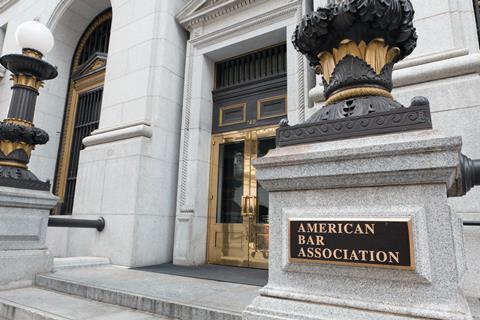National bars diverge markedly on conduct issues – how can the gap be bridged?
It seems that legal policy has its own great divide, rather like Leave or Remain. You can take this simple test and see which side you fall on.

The questions arise in this way. The International Bar Association (IBA) is currently reviewing its International Principles on Conduct for the Legal Profession. In several areas the working group, made up of lawyers from around the world, could not make up its mind. The draft has now gone out to IBA member bars and from their preliminary responses it seems they cannot make up their minds either.
Two of the questions are similar. First, should diversity and equality be recognised as a new principle for lawyers’ conduct, to be included in the current document, since at present there is no mention of it? In our jurisdiction we might think there is nothing to consider here. We are already used to one of the SRA’s mandatory principles stating that you must ‘run your business or carry out your role in the business in a way that encourages equality of opportunity and respect for diversity’.
But that is not a widespread view. It is not that anyone has opposed the concept of diversity and equality. But in several countries the view is that diversity and equality are general social matters, not specific enough to lawyers to be included in a code and commentary intended for the profession.
The difference of opinion turns on whether you think that lawyers’ codes should include only what is specific to lawyers, or should also include social and legal obligations which apply to every member of society. Our regulators have already made that decision for us.
The second question turns on another social question: access to justice. This can cover a variety of separate issues, such as pro bono, legal aid, court fees, availability of lawyers and proximity of courts.

The working group had a rather similar discussion on this topic to the one on diversity and equality, with two bodies of opinion emerging. Those in favour of the inclusion of a new principle felt that it was not a social issue, but an underlying principle of the rule of law, and that rights mean nothing without access to enforcement. Those opposed believed that access to justice is the duty of the state and not of the individual lawyer. They felt that although a lawyer should not stand in the way of access to justice, it is not a matter of conduct for an individual lawyer, and so the topic should not be included as a principle.
Interestingly, the SRA principles are silent on access to justice and there is no specific obligation on solicitors. Of course, in our system state-sponsored legal aid is supposed to provide widespread access, damaged as that concept now is through cuts. Other systems somewhat similar to our own, such as that of the US, deal with the matter differently. The American Bar Association’s Model Rules on Conduct say: ‘Every lawyer has a professional responsibility to provide legal services to those unable to pay. A lawyer should aspire to render at least (50) hours of pro bono publico legal services per year.’
On both questions, people felt rather strongly about the position they had taken. I suspect that the IBA Council will in due course have to decide by vote which position to take, and it is impossible to predict the outcome.
These were not the only issues which divided lawyers. Another is what to do about unregulated providers of legal services.
Should the IBA provide any guidance at all about unregulated providers, given that its mandate covers lawyers? Should guidance regarding the unregulated be in the same document as the one for lawyers, or in a separate document? (The view is that it should be in a separate document.) Should the duties on the unregulated be similar to those on lawyers, or is that to erode the specific position enjoyed by regulated lawyers?
There is a growing number of unregulated providers in many jurisdictions, and the response is not easy. Most in the working group felt that doing nothing was not an option, but what to do is more difficult.
Finally, should the commentary accompanying the principles mention that decision-makers are attacking the fundamentals of professional secrecy, for instance in the area of tax avoidance and the mandatory declaration of lawful schemes? That would at least alert bars to the need to take steps to protect the principle, but some feel that even a mention of such attacks is to give sanction to them.
So, legal policy-making is not without its equivalents of the culture wars. The IBA must now try to bridge the divide.
Jonathan Goldsmith is Law Society Council member for European Union matters and a former secretary general of the Council of Bars and Law Societies of Europe. All views expressed are personal and do not necessarily reflect the views of the Law Society Council



























No comments yet